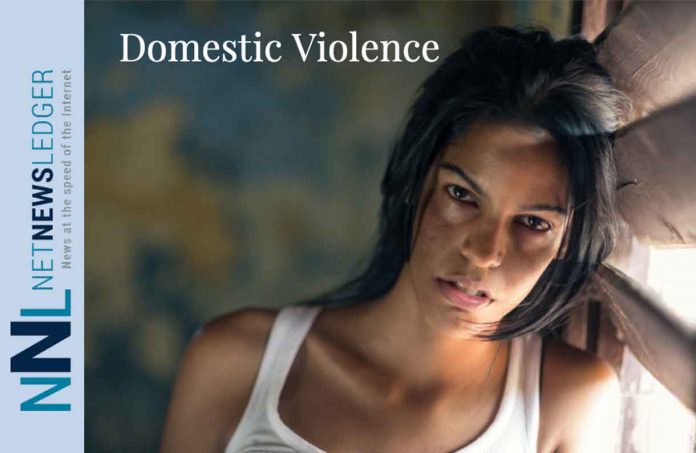WINNIPEG – OPINION – Julie Racette, a Winnipeg resident from Ebb and Flow First Nation, died early April 11 after being taken to hospital.
Initially, the cause of death of the 34-year-old was believed to be a medical problem. After an autopsy, police said she had been a victim of homicide and her husband, Wayne Melnychuk, 42, was charged with manslaughter.

Melnychuk disappeared a day after Racette died. He is described as 5-7 with a medium build, brown hair, and is Caucasian in appearance. Police warn the public not to approach him and call 911 if they see him.
Racette and Melnychuk were a couple for 14 years and have three children, aged 2, 11, and 14.
Chasity Almas, Racette’s oldest sister, said the couple had been arguing more than usual due to “being locked down with the kids” during the COVID-19 pandemic.
This resulted in an “escalation” in tension because “they were getting on each other’s nerves,” she said.
Domestic violence has been rising from day one of the COVID-19 pandemic. In China’s Hubei province — where the virus began — domestic violence reports tripled after the lockdown was instituted. In France, domestic abuse has risen 36 percent and, in Brazil, it’s up 40 percent. In the United Kingdom, there’s been a 25 percent increase.
In Vancouver, calls to domestic violence shelters have tripled. In York, just north of Toronto, such complaints have risen 22 percent.
We have learned the recent mass killings in Nova Scotia began with a domestic assault.
While most crime is decreasing because people are at home, domestic abuse is going up.
It’s already alarmingly high. Domestic violence is consistently the top issue Winnipeg police respond to. Every year, these represent around 16,000 calls, or 44 each day.
It’s too early in the pandemic to judge Winnipeg police statistics (a spokesman said there is “not a statistically significant change in domestic violence calls”) but domestic violence prompted a 911 call to police on April 9. Officers who responded to the call from a home on Anderson Avenue shot 36-year old Jason Collins. The Independent Investigation Unit of Manitoba is looking into the incident.
On March 24, Winnipeg police responded to a call that a two-year-old had been injured in his home. Brett White died two days later in hospital. Police charged his stepmother, Victoria Thiessen, with manslaughter.
A Manitoba Crown attorney told me this week that the amount of domestic violence cases he has seen during the pandemic is “unprecedented.” Many are first-time charges against individuals with no record of domestic abuse.
Trauma, substance abuse, and stress brought on by the pandemic — aggravated by the order to stay home — have created a perfect situation for domestic violence to thrive.
If partners — most often women with children — leave, they are at the mercy of shelters and agencies whose funding and resources have been reduced.
While the Manitoba Association of Women’s Shelters has been able to keep all 10 provincially funded women’s shelters open alongside 10 other affiliated partners, critical spaces such as the North Point Douglas Women’s Centre have had to reduce hours, staffing, and access to resources such as computers and food banks.
Overall, it appears Indigenous women and families are some of the hardest hit and deserve unique attention.
A report by the Manitoba First Nations Police Service, which polices six First Nations, for the weekend of April 10 to 13, shows half of the cases officers responded to were domestic disputes.
Help is coming.
On April 4, the federal government announced $40 million for women’s shelters and $10 million for Indigenous family shelters.
Still, concerns about social distancing, moving, and safety have resulted in women’s shelters reporting reduced calls and fewer families in shelters, the Manitoba association said. In other words, the abuse is still there, but it’s riskier than ever for abused spouses to leave home.
Child welfare agencies have logged fewer reports of child abuse, but this is likely due to fewer witness accounts because school staff make up to 90 percent of all reports of child abuse — and school is out.
This means the public is at the front line of domestic violence and child abuse. During this pandemic, we must also work to stop an epidemic of domestic violence. If you see, hear, or know of abuse, report it. The 24-hour domestic violence helpline is 1-877-977-0007. The phone number for the Kids Help Phone is 1-800-668-6868.
 Niigaan Sinclair
Niigaan Sinclair
Originally appeared in the Winnipeg Free Press in April 2020. Republished with the permission of the author.
The views, opinions, and positions expressed by all columnists and contributors are the author’s alone. They do not inherently or expressly reflect the views, opinions and/or positions of NetNewsLedger.







